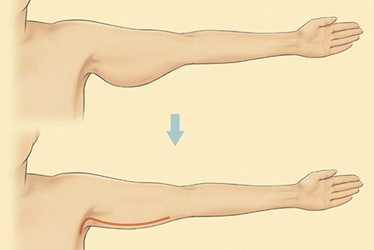As sewer cleaners look for cheap labour, daily wagers pay with life
Shikha Salaria | TNN | Sep 23, 2017, 08:08 IST The sewage which caused the death of the three sanitation workers in Sector 110
The sewage which caused the death of the three sanitation workers in Sector 110
NOIDA: The death of three workers in a sewer line in Noida's Sector 110 on Thursday shows how a section of the poor is still forced to risk their lives to keep our cities clean, despite a ban on manual scavenging.
According to officials at Noida Authority, there are two categories of labourers who are hired as cleaners and sanitation workers, among others, in the city.
There are nearly 1,500 workers hired by contractors, who are generally engaged in regular cleaning work of an entire area and get a 2.5% share of the total amount allocated from the Jal and sewer department of Noida Authority. These workers, who work as pump operators, cleaners or sanitation workers, are on a regular payroll and generally get safety gears during their work.
A second category of workers, mostly migrants, are hired randomly by private contractors, who take up projects given on tender.
Though there is no fixed number, the Noida Asthayi Karamchari Utthan Samiti suggests that another 1,500 workers fall in this category.
Since these private contractors do not get any kind of commission and are hired through e-tenders, which go to the lowest bidders, the workers hired by them are not on any fixed payroll either. They are paid wages on a daily basis.
Further, these private contractors, in their bid to cut costs, do not provide their labourers with any mask or other safety gear for working in hazardous conditions.
Officials said the three sanitation workers — Rajesh Kumar (28), Ravindra (25) and Vikas (19), who choked on toxic gases inside a narrow sewer line in Noida on Thursday — belonged to the second category. This kind of workers are generally at the mercy of their contractors and go into sewer lines without any safety belt, gas cylinder or gas masks. Most of these workers live in slums of Barola, Bhangel, Harola, etc.
"They are usually unaware of what they are getting into. Some of them do such job for a petty sum of Rs 200-250," said Mintu Kumar, one of the labourers residing in a jhuggi-jhopdi cluster in Sector 16.
On March 27, 2014, while disposing of a writ petition filed by Safai Karamchari Andolan and others, a three-judge bench of the Supreme Court had said entering sewer lines without safety gears should be made a crime even in emergency situations.
Also, as per the Prohibition of Employment as Manual Scavengers and Their Rehabilitation Act of 2013, no human should be allowed into drains or septic tanks unless it is an emergency and even in that case, one should enter a sewer line only after wearing gloves and gumboots.
"Since we are on a fixed pay roll of the contractor, we know what is required and how we should go about the work. But they (those belonging to the second category) do not know about the safety rules and gears. And thus, they often fall unconscious or even die due to toxic gases," a sanitation worker, working at the sewer pump station in Sector 5, told TOI on condition of anonymity.
Sometimes, private companies hire contractors, who make cheap labour available for cleaning sewers.
There are many sanitation workers on a regular payroll who claim that their main job is to sweep roads and keep localities clean, but they are often asked to unclog sewer lines. "We are sweepers but still we are asked to clean sewers in case of emergency. We cannot say no to supervisors as we are poor," said Rupesh, one of the sanitation workers.
According to officials at Noida Authority, there are two categories of labourers who are hired as cleaners and sanitation workers, among others, in the city.
There are nearly 1,500 workers hired by contractors, who are generally engaged in regular cleaning work of an entire area and get a 2.5% share of the total amount allocated from the Jal and sewer department of Noida Authority. These workers, who work as pump operators, cleaners or sanitation workers, are on a regular payroll and generally get safety gears during their work.
A second category of workers, mostly migrants, are hired randomly by private contractors, who take up projects given on tender.
Though there is no fixed number, the Noida Asthayi Karamchari Utthan Samiti suggests that another 1,500 workers fall in this category.
Since these private contractors do not get any kind of commission and are hired through e-tenders, which go to the lowest bidders, the workers hired by them are not on any fixed payroll either. They are paid wages on a daily basis.
Further, these private contractors, in their bid to cut costs, do not provide their labourers with any mask or other safety gear for working in hazardous conditions.
Officials said the three sanitation workers — Rajesh Kumar (28), Ravindra (25) and Vikas (19), who choked on toxic gases inside a narrow sewer line in Noida on Thursday — belonged to the second category. This kind of workers are generally at the mercy of their contractors and go into sewer lines without any safety belt, gas cylinder or gas masks. Most of these workers live in slums of Barola, Bhangel, Harola, etc.
"They are usually unaware of what they are getting into. Some of them do such job for a petty sum of Rs 200-250," said Mintu Kumar, one of the labourers residing in a jhuggi-jhopdi cluster in Sector 16.
On March 27, 2014, while disposing of a writ petition filed by Safai Karamchari Andolan and others, a three-judge bench of the Supreme Court had said entering sewer lines without safety gears should be made a crime even in emergency situations.
Also, as per the Prohibition of Employment as Manual Scavengers and Their Rehabilitation Act of 2013, no human should be allowed into drains or septic tanks unless it is an emergency and even in that case, one should enter a sewer line only after wearing gloves and gumboots.
"Since we are on a fixed pay roll of the contractor, we know what is required and how we should go about the work. But they (those belonging to the second category) do not know about the safety rules and gears. And thus, they often fall unconscious or even die due to toxic gases," a sanitation worker, working at the sewer pump station in Sector 5, told TOI on condition of anonymity.
Sometimes, private companies hire contractors, who make cheap labour available for cleaning sewers.
There are many sanitation workers on a regular payroll who claim that their main job is to sweep roads and keep localities clean, but they are often asked to unclog sewer lines. "We are sweepers but still we are asked to clean sewers in case of emergency. We cannot say no to supervisors as we are poor," said Rupesh, one of the sanitation workers.
Get latest news & live updates on the go on your pc with News App. Download The Times of India news app for your device.
From around the web
More from The Times of India
From the Web
More From The Times of India
- Can This Super-Coffee Help Joint Pain & Inflammation?VitaCup

- Interview Reveals Millionaire's Genius, Yet Simple, Stock ..Money Morning

- Stream All Episodes of ABC's black-ish Before the Premiere!ABC

- 2017 Lincoln Navigator. Put Power And Comfort At Your Com..Yahoo Search

- Florida man reveals his secret to collecting an extra $480..Wealthyretirement.com








































All Comments ()+^ Back to Top
Refrain from posting comments that are obscene, defamatory or inflammatory, and do not indulge in personal attacks, name calling or inciting hatred against any community. Help us delete comments that do not follow these guidelines by marking them offensive. Let's work together to keep the conversation civil.
HIDE